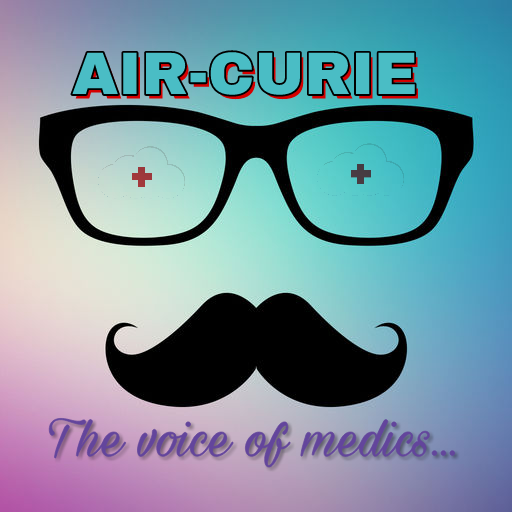How To Change Your Blood Group Into "Type O"

Source: Pixabay.com
Introduction:
Surfing the web last week, I found this intriguing article in French which discuss a new revolutionary technique that can turn any blood type into type O blood. The research was presented in the 256th National Meeting of the American Chemical Society by Pr. Stephen Withers and his team from the University of British Columbia, so I 've become very curious about the subject and I started doing my own research about the matter. Blood type O is the universal donor, if we provide enough supply then any blood type can benefit any person in need of a transfusion regardless of his blood nature. Nowadays even after all the efforts of encouraging people to donate blood, there is still a significant shortage in blood banks and people are still dying because of it, but what if we get rid of this issue once and for all? How many lives could we save? How amazing would that be?
Before we jump into discussing the different aspects of the research, first, there are a few concepts you need to be reminded of and understand.

ABO system overview :
First let's begin with some rudimentary basics, red blood cells (RBCs) are covered with different types of sugar molecules on their surface, they form two possible types of antigens: A and B, resulting in four different blood types: A, B, O (if no antigen is present) and AB (if both antigens A and B are present). Naturally, the immune system produces antibodies against the missing antigens, so for example, an A-type blood serum contains anti-B antibodies. This is what defines the different rules of transfusion, any interaction between an antibody and its correspondent antigen results in disastrous hemolytic accidents which sometimes can even kill the patient. For those who probably don't know, we never actually transfuse the whole blood but rather a blood product. In fact, when blood banks receive a donation, they separated the blood of the donor into different products aka red blood cell concentrates, plasma, platelets concentrates...
When we talk about blood transfusion, the majority of the time it means transfusing red blood cell concentrates.
Type Blood O is the universal donor because it doesn't have any antigens on the surface of RBCs so whatever the serum type of the receiver there will be no possible interaction.
On a molecular level, things are a little bit tricky...
Molecular structure of different blood types 'Modified' (Source: Wikimedia)
As you can see, the different sugar molecules of each blood type share a common sequence, the H antigen. It serves as a substrate in the synthesis of antigen A and B if antigen H is missing it would be impossible to make any one of them, in this case, antigen H is replaced with antigen h forming the Bombay blood group, a very rare blood type. This particular blood type causes many problems in transfusion because we can only transfuse Bombay blood concentrates which are nearly impossible to find in the first place. If we manage somehow to remove the extra sugar molecules from type A, B or AB RBCs, then we transform them into type O RBCs! This was the subject of different studies on the past decades because the idea was so simple and let us not forget the fact that these sugar molecules are fully exposed on the surface susceptible to be taken away easily by enzymes.
An extremely efficient enzyme?
The concept of transforming blood types into one universal type isn't new before the year 1980 scientists began to search for enzymes that are powerful enough to do the job, such enzymes are called glycosidases due to their ability to break glycosidic bonds. There were many successful attempts over the years, for instance, an enzyme found in coffee beans did the job but it was extremely inefficient and it required specific conditions so the operation wasn't worth it in the long run, the good thing is that new hopes were born that day. Another team from China has succeeded in his mission and made more stable RBCs from type A and B blood using two enzymes alpha-N-acetylgalactosaminidase and alpha-galactosidase. (Source: 1,2)
Unfortunately, all the previous tested enzymes were not effective enough, this means although we have succeeded in making a universal blood type, we won't be unable to use it in practice for multiple reasons that we will discuss later on.
Metagenomics is the study of microbes in their natural living environment, which involves the complex microbial communities in which they usually exist. The study examines the genomic composition of an entire organism, including each of the microbes that exist within it.
Pr.Withers and his team specialize in such a field, they were able to study many organisms at the same time and test their DNA to find a possible efficient glycosidase, they turned to study the human gut microbiome. If you wonder why the answer is quite simple, the intestinal walls are well protected by a mucus layer, the mucus itself is a mixture of different substances, one of them is called mucins.
Mucin molecules have protein cores and sugar molecules (polysaccharides) attached to their ends, they are very abundant in the human gut.
Mucin structure (Source: Wikimedia)
During multiple bacterial infections, some bacteria have the ability to destroy the enterocytes from the outside in, a real invasion, so it's logical to assume that these bacteria have some sort of attack mechanisms to cross the mucus layer first. After testing thousands of DNA fragments, the team finally succeeded to find a gene that codes for a super-enzyme capable of removing antigen A and insert it into an Escherichia Coli bacteria, this extremely powerful enzyme is 30 times more efficient than all the other known enzymes. It's important to notice that there are discovered efficient enzymes which are able to remove antigen B so the team focused more on antigen A removers as it has been always the biggest challenge according to them.
But wait! Why you keep repeating effective effective ? why does such an enzyme need to be as effective as possible ?
For a couple of reasons obviously, first and foremost for economic purposes. Ineffective enzymes require more quantity to achieve the same effect of effective enzymes, this will put a huge financial burden on the state. Second, as Pr.Withers explained, if we use a large quantity of a specific enzyme then we should find a good way to remove it from the blood afterward because any trace in the bloodstream increases the risk of developing an acute immune response (sepsis) after all these enzymes are nothing more than bacterial compounds.
This sounds wonderful, but...
Well, nothing is ever perfect with the human body, there is always a catch. The ABO system isn't the only system of antigens in RBCs, there are more complicated systems but their antigenic power is insignificant compared to the ABO system. Some good examples of these systems are the Rhesus system, the Kidd system, the kell system, the MNS system etc...
The Rhesus system is the most powerful one of them, it consists of 49 known antigens known to scientists for the time being. If these antigens are able to induce an immune response than the blood type is positive, if not, then it's negative, this one particular thing makes it harder to define a completely positive or negative rhesus blood type, there will be always a variation range. During the transfusion, we always tend to respect the rhesus system, for example, a person with A- blood type cannot receive an A+ blood type because there will be a huge risk to develop antibodies against the rhesus antigen which can lead sometimes to very dangerous hemolytic accidents. So if we manage to transform a certain blood type into type O blood, we will have to deal first with the presence of rhesus antigens (if the blood type is positive). Unlike the ABO system which consists of sugar molecules, rhesus antigens are transmembrane proteins, harder to access and very sensitive because of their position inside the cell's membrane. The team believes that there will a chance to cover up their sites in the future to negate their antigenic effects but that's just one temporary solution that stills in discussion and other solutions could fix the issue.
Polytransfused patients form another obstacle, they usually need multiple transfusions and with each one, they are more likely to develop antibodies against the antigens of minor blood systems, what this means is that we will be facing more and more transfusion problems with them.
A purely universal blood seems to be an impossible task for the moment because of the extreme complexity of blood system antigens but with certain manipulation, we can manage to make it at least transfusable.
The other big problem lies in the nature of the experience, we never actually tested the universal blood in vivo, first we need to realize multiple cross-matching tests to ensure the safety of the blood in vitro, unfortunately for us we can't test the blood units on animals because we don't have the same antigenic systems so we need to move progressively to human clinical trials and test different blood types on different patients because not everyone responds the same to blood transfusions either because of the nature of their immune response or due to the traces of enzymes and chemicals in the previously treated blood units. Despite the different obstacles, we really made a huge step in the area and we might be able finally to see some real clinical results in the near future and save many many lives.
Written by @fancybrothers!
References and for further readings:
Bacterial glycosidases for the production of universal red blood cells, 2007
In the Quest for Universal Blood, Go With Your Gut
Gut bacteria provide key to making universal blood, AMERICAN CHEMICAL SOCIETY

One more thing, Join the @steemSTEM community, A community project to promote science technology engineering and mathematics postings on Steemit.


Also, join @air-clinic a project aimed at providing quick, accessible, affordable global healthcare all round the clock.

Thanks @air-clinic, nice to see my article on your blog ! Much love
Hey @fancybrothers!
You did a great job in the article! Well-done !
WRITE MORE HEALTH ARTICLES 🏥💙♨
Congratulations! Your post has been selected as a daily Steemit truffle! It is listed on rank 11 of all contributions awarded today. You can find the TOP DAILY TRUFFLE PICKS HERE.
I upvoted your contribution because to my mind your post is at least 11 SBD worth and should receive 125 votes. It's now up to the lovely Steemit community to make this come true.
I am
TrufflePig, an Artificial Intelligence Bot that helps minnows and content curators using Machine Learning. If you are curious how I select content, you can find an explanation here!Have a nice day and sincerely yours,

TrufflePigGreat. That is why I always love air-clinic. You tend to learn new things about health. Reading this post today. I never thought about changing blood group. I have learn a lot in this post and thank God for air-clinic also. It has always be helpful
Posted using Partiko Android
Quite too technical for my read. Can somebody help break it down???
Simply put: A, B and AB blood groups are characterized by sugar molecules in their surface, a group of researchers recently found an extremely powerful enzyme capable of removing them so that we end up with O blood type.
Wow! Really wonderful article. Although it is theoretical and long way to be useful on clinical practice , nice to know that there is possibilities.
Posted using Partiko Android